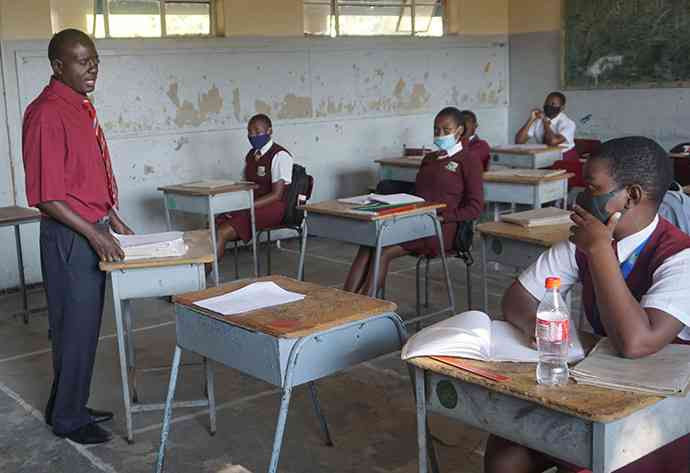
IN schools across Zimbabwe, teachers are expected to perform miracles — preparing future doctors, scientists, farmers, and leaders — while often lacking the most basic tools to do their jobs.
Chalk, charts, textbooks, markers and even simple classroom decorations are frequently purchased not by the parent ministry or school heads, but by the teachers themselves.
It’s an open secret in the education system: If a classroom is well-resourced, chances are, the teacher paid for it.
This situation is not just frustrating — it’s wrong.
Funny part, it used to be a problem in public schools alone, now even the private education sector has joined the bandwagon of such modus operandi.
A professional shouldn’t have to beg
Teaching is a profession.
Like any other professional, a teacher should be equipped with the tools required to perform.
- Mavhunga puts DeMbare into Chibuku quarterfinals
- Bulls to charge into Zimbabwe gold stocks
- Ndiraya concerned as goals dry up
- Letters: How solar power is transforming African farms
Keep Reading
We wouldn’t ask a surgeon to bring their own scalpel or an engineer to buy their own machinery.
Yet teachers in Zimbabwe are routinely forced to dip into their own modest salaries just to ensure learning continues.
This is not an act of charity; it’s an act of desperation born out of love for the students and fear of failure — not theirs, but the students’.
Systemic obstacles: Bureaucracy and misplaced priorities
The education system is heavily bureaucratic.
Even when schools are allocated a budget, accessing those funds for “non-essential”teaching aids often involves a maze of paperwork and approvals from uninterested or unsympathetic superiors.
Some heads/principals view visual learning aids or extracurricular supplies as luxuries, not realising they are central to modern, interactive learning.
In other cases, funds are diverted or poorly allocated.
Larger sums may go toward administrative costs, maintenance or infrastructure — important, yes, but not at the cost of neglecting the classroom experience.
When a teacher requests crayons, glue, or a new whiteboard marker, they are often met with blank stares or the dreaded: “There’s no money for that.”
When there truly is no money
Granted, Zimbabwe’s economy has been in a prolonged crisis, and sometimes schools genuinely lack the funds.
Inflation erodes buying power.
Government support can be inconsistent or delayed.
But even then, the burden should not fall solely on the teacher.
School owners, school authorities and the ministry should try by all means to mobilise support — through community partnerships, local business sponsorships, or donor appeals.
A national strategy should be in place to ensure that basic teaching resources are never considered an “optional extra”.
A child failing an examination because there was no US$50 or ZiG1750 to print worksheets or no wall chart to explain a science topic is a tragedy that shouldn’t be happening in 2025.
The silent sacrifice
At the heart of this issue is the unwavering dedication of Zimbabwean teachers.
Despite salaries that often don’t stretch beyond the first week of the month, many teachers continue to fork out personal funds for the classroom.
It’s not out of obligation but from a deep-seated fear: “What if my students fail because I didn’t provide enough?”
That fear keeps them buying manila, markers, chalk, printing materials, and even sanitary pads for girls who would otherwise miss class.
This is not sustainable.
Love for the profession should not be weaponised against teachers.
It is time the education system stops romanticising the “selfless” teacher and starts respecting them as professionals who deserve to teach under proper conditions.
Teachers are doing their part and more.
It’s time the system meets them halfway.
Let’s stop making them choose between feeding their own families and equipping their students to learn.
- Bessie Masiya is a primary school teacher and a multi-sports coach. She can be contacted on bessiemasiya@gmail.com and her X handle is @Bessie_Masiya.










